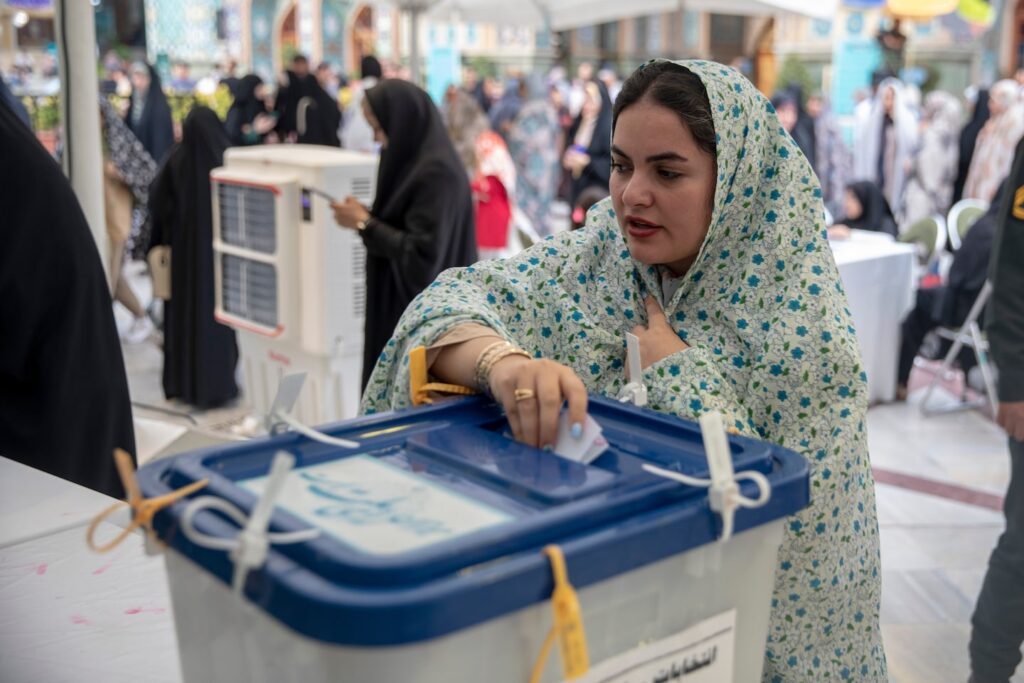Iran is voting to choose a successor to hardline leader Ebrahim Raisi, who died in a helicopter crash last month. Under Iranian law, a presidential candidate must win at least 50 percent of the vote to take office.
In a surprising turn of events, only a reformist figure received the most votes on Friday. Heart surgeon Massoud Pezeshkian received some 10.5 million votes. He will face off against ultra-conservative Saeed Jalili, a former top nuclear negotiator, who received just under 9.5 million votes. Mohammad Bagher Ghalibaf, speaker of Iran's parliament, came in third with about 3 million votes.
A runoff election will be held next Friday, July 5, in which Iranians will choose between Pezeshkian and Jalili. Iran's powerful Guardian Council, an unelected body of jurists and theologians, will review the results before the top two candidates begin campaigning again.
The conservative vote was split, and reformists appeared to win the largest number of votes. Two other conservative candidates withdrew days before the vote, but Mr. Jalili and Mr. Ghalibaf resisted calls for either candidate to step down.
Ghalibaf voiced his support for Jalili on Saturday, calling him “the Revolutionary Front's candidate.”
Get caught up in
Stories to keep you up to date
“I call on all revolutionary forces and supporters to cooperate in preventing the wave that is a key cause of today's economic and political problems from regaining power,” he said in a written statement to supporters published by state media, explaining his opposition to the reformist Pezeshkian.
Many expected a runoff election, but some analysts said Iran's Supreme Leader Ayatollah Ali Khamenei probably wanted to avoid that, fearing a second round of voting could introduce further uncertainty into the electoral process.
For Iran's rulers, a smooth and predictable electoral process with high voter turnout is important to maintaining the stability and legitimacy of the regime.
Ahead of the election, Ayatollah Khamenei called on Iranians to vote. “The survival of the Islamic Republic depends on the turnout and participation of the people,” Khamenei told reporters after casting his vote on Friday, as polling stations opened across the country.
Instead, turnout was low due to a mix of apathy and opposition to Iran's clerical rulers. Many Iranians said they would not vote because they did not believe elections had the power to influence policy, while others said they were disillusioned with a government that had failed to improve their daily lives.
The vote comes as Iran is mired in an economic crisis with inflation spiralling out of control, and regional tensions are also rising as Israel wages war in Gaza against Hamas, which is backed by the Iranian regime.
Tensions entered uncharted territory in April when Iran launched its first direct attack on Israel. Elsewhere, other Iranian-backed groups, including Hezbollah and the Houthis, have launched attacks citing solidarity with the Palestinian people.
The election of a new Iranian president will not change policy in key areas such as foreign policy and the nuclear program. The country's supreme leader makes virtually all major national decisions, but he has the power to set some economic policy, oversee the national budget and sign treaties.

